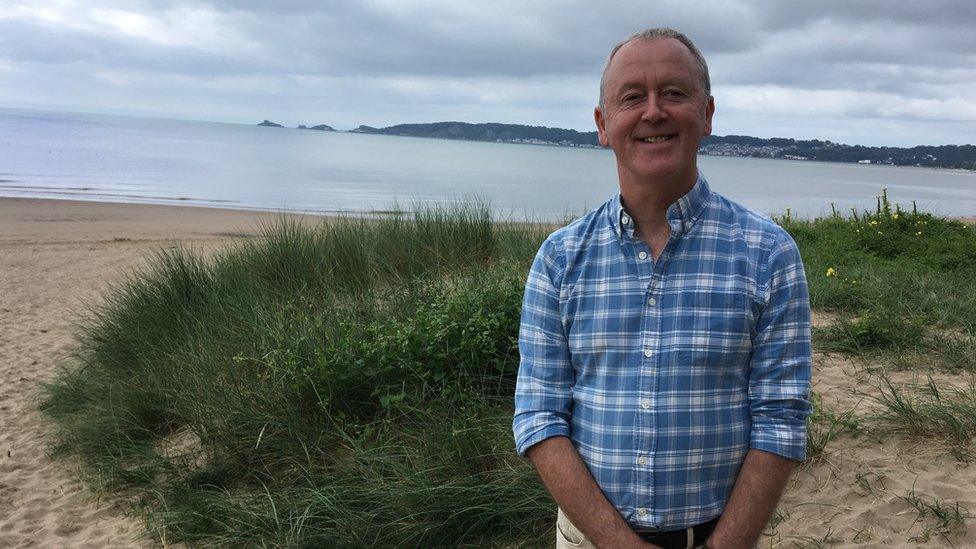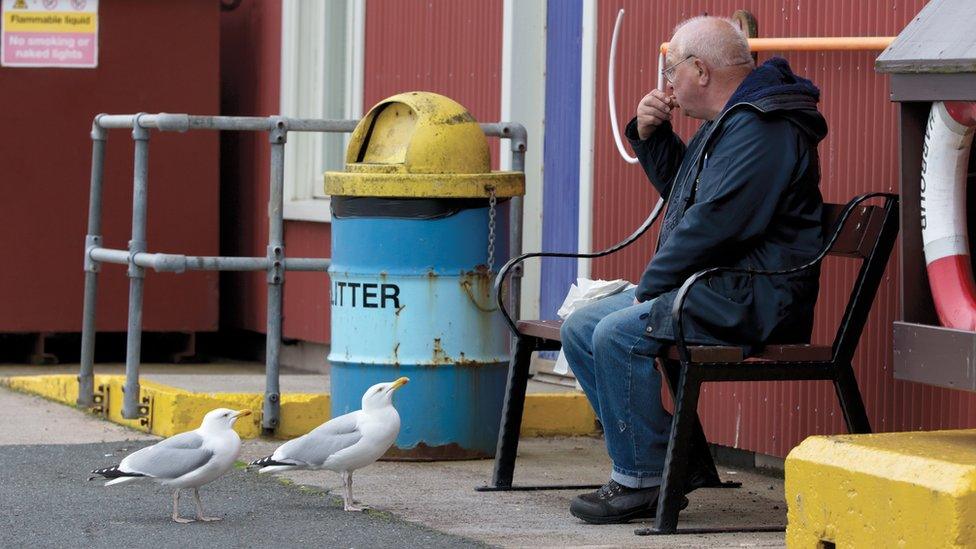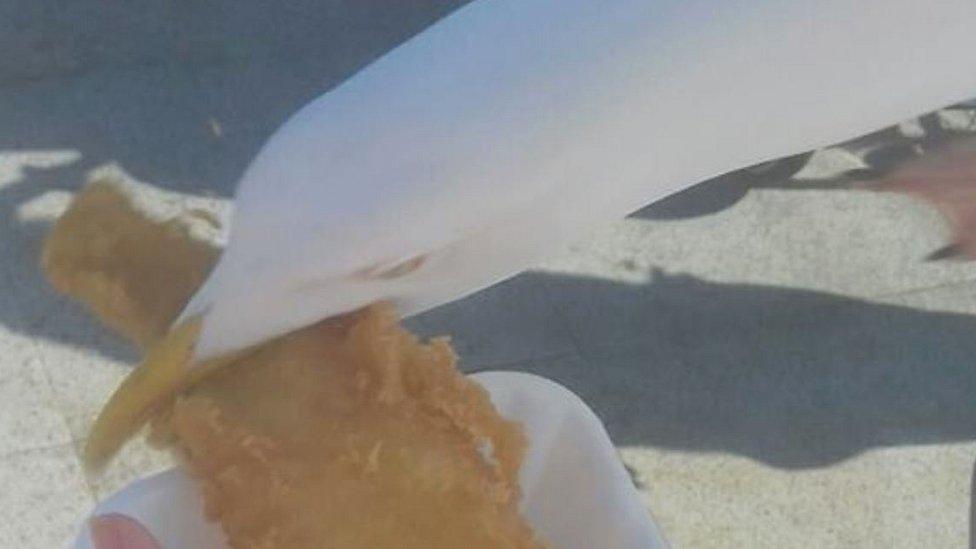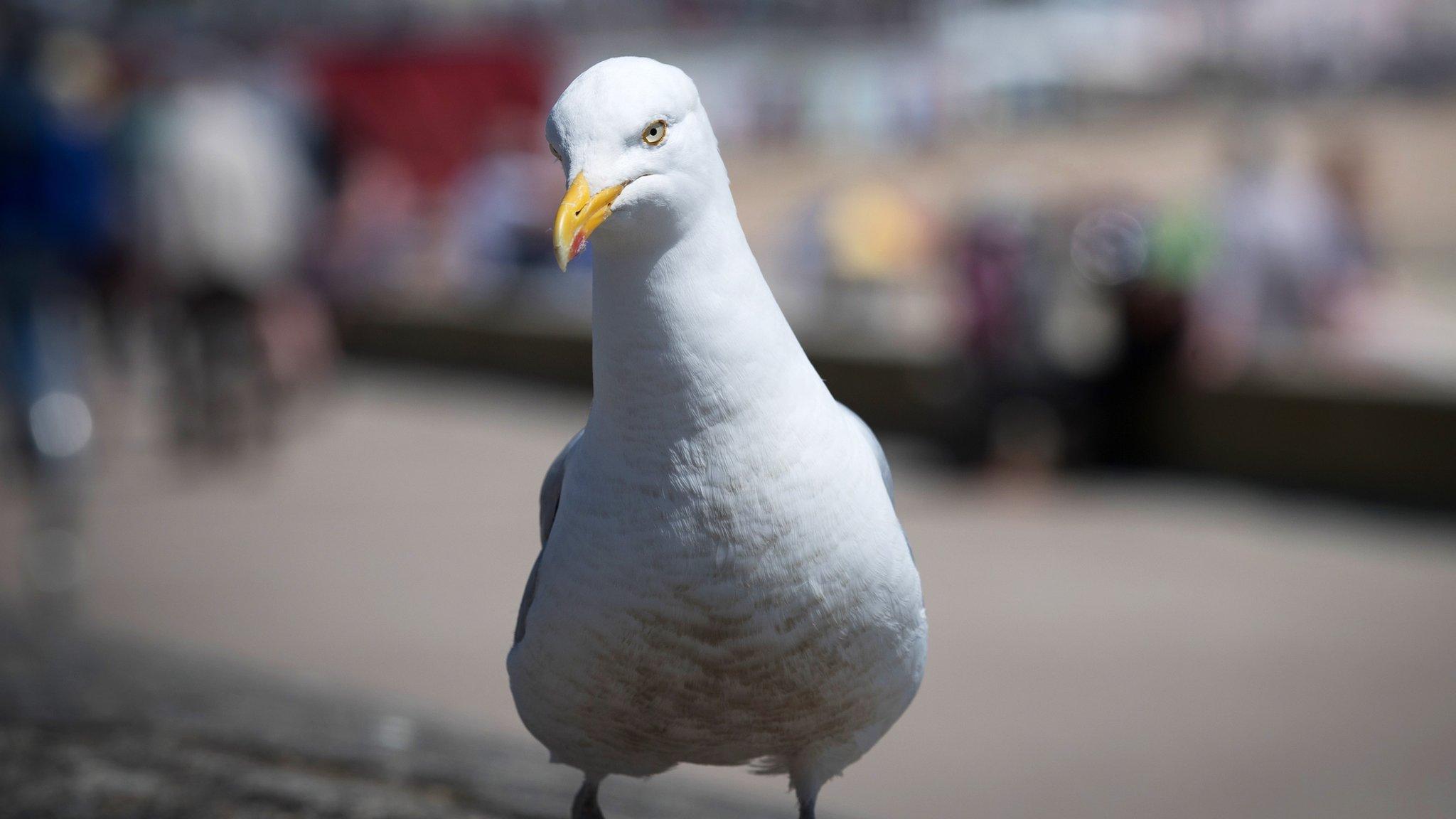Swansea: Call to end 'cruel' anti-seagull spikes and nets
- Published
Rubbish strewn across Tenby's streets has been blamed on gulls tearing open bags
From swooping for ice cream to ripping apart bin bags, seagulls have gained a bit of a bad reputation for being a pest.
But after a Swansea man saw a herring gull impaled on an anti-gull spike, thousands are calling for the use of nets and rails to be banned in Wales.
Patrick Driscall said being a nuisance was no reason for a "painful death".
The Welsh government said the measures should only be used "in exceptional circumstances".
In recent years there have been calls for culls in seaside areas, including Barry Island, after reports of adults and children being injured by dive-bombing gulls trying to steal food.

Mr Driscall says the pandemic has shown how important it is to treat nature with respect
More than 37,000 people have now signed a petition calling for the UK and Welsh governments to review the use of "cruel" netting and spikes to deter gulls.
Mr Driscall, from Sketty, told the Local Democracy Reporting Service he felt herring and lesser black-backed gulls, whose populations are declining, had got a bad press and less harmful deterrents should be used.
He said leaving litter and food waste was encouraging the birds into towns and cities, and other birds were getting caught.
"I understand that people get concerned about the noise gulls make, and each year there are stories about them grabbing ice creams, but it's minor really in the grand scheme of things," said the 57-year-old.
"[But] simply having a gull or other bird clattering about on your roof, nesting or squawking excitedly is not a reason to cause their painful death and I think it's absolutely high time for a review."

Trying to protect your sandwich or chips at the beach can be a difficult mission
All species of gull are protected under the Wildlife and Countryside Act 1981, which makes it illegal to intentionally kill or destroy an active nest or its contents.
But in certain circumstances, it states control measures may be necessary and licences can be issued by Natural Resources Wales (NRW) permitting nests or birds to be destroyed.
This is only if there is no non-lethal solution and if it is done to prevent serious damage to agriculture, the spread of disease, to preserve public health, preserve air safety or to conserve other wild birds.
While spikes and nets are used on some buildings, in other places more imaginative methods have been used.
How Aberystwyth is tackling the problem of seagull litter
During lockdown, while Members of the Senedd where working from home, fake birds of prey were used on top of a Welsh Parliament building in Cardiff Bay to scare the birds away.
Dr Viola Ross-Smith, of the British Trust for Ornithology, said: "I think it would be good if we could learn to be a bit more tolerant."
The Welsh Government said all new installations of spikes and nets would be subject to planning regulations, and that the focus should be on other measures such as reducing the availability of food waste to avoid harming wildlife.
- Published23 April 2019

- Published8 August 2019

- Published21 June 2021
